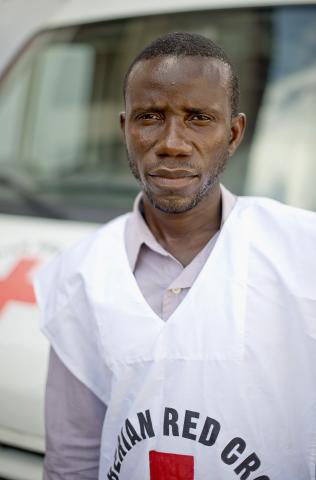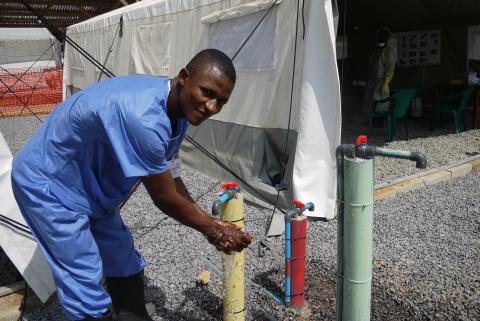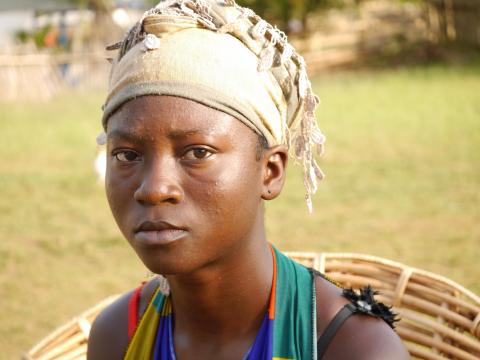Helping Ebola survivors survive in Sierra Leone
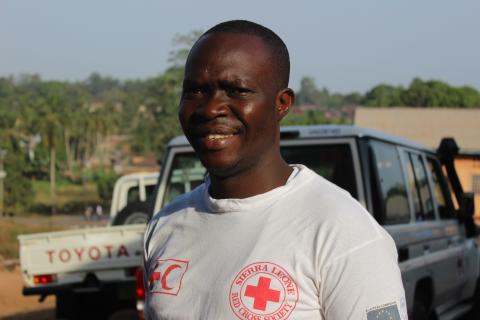
By Lisa Pattison, IFRC

Without a doubt, stepping over the threshold to leave an Ebola treatment centre for the last time gives a patient a certain degree of euphoria. Against many odds they have survived this highly contagious and deadly disease. However, the grim reality of day-to-day survival looms ahead as many have lost the breadwinner of the family or their entire family, and their possessions have been destroyed, burned or disinfected with chlorine solution to avoid the further spread of the disease.
To facilitate the reintegration of survivors back into their communities, the Sierra Leone Red Cross Society is providing 2,000 survivor kits to all patients being discharged from Ebola treatment centres across the country. Individuals hosting Ebola orphans are also receiving these kits to help alleviate the extra financial pressure they face of having to care for an additional person. The survivor kits contain mattresses, clothes, food, money, personal hygiene goods, household items and condoms.
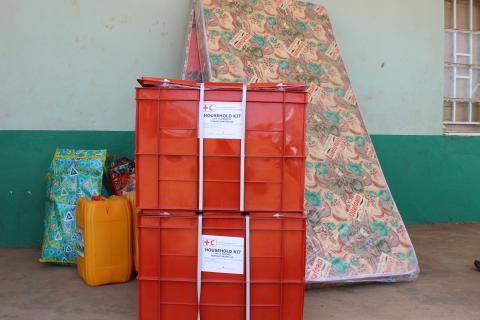
N’mah Sesay received a kit after being discharged from an Ebola treatment centre in Port Loko. Nine people within her compound were Ebola positive after having come into contact with an individual who fled quarantine in a neighbouring village and sought refuge with them. Although N’mah’s family ordered the individual to return to his village, they became infected with the virus. Three have survived but the fate of the others is unknown. All of the nine patients lost their possessions in the decontamination process.
“I am the happiest person in the world now to have been given these items. All my possessions were burned,” says N’mach Sesy upon receiving her kit. “These things will be very useful in the future.”
The discharge kits serve as an economic buffer for survivors while they regain their physical strength and come to terms with the psychological aspect of having battled through one of the world’s deadliest diseases. “The kits let survivors restart their lives because many have lost family members and their possessions. They are often lost, so this help from the Red Cross is really appreciated,” says Cherner B. Kamara, a Red Cross psychosocial support volunteer.
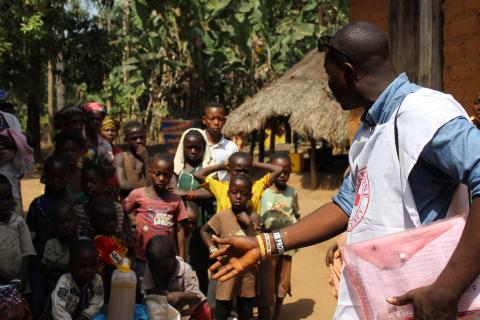
Before the patient is discharged, psychosocial volunteers go to the community to prepare for the survivor’s return by explaining that they are cured and are no longer infectious. These visits allow the community to raise any concerns which helps decrease their fear and has been shown to result in the acceptance of returning patients. The psychosocial volunteers will then continue to visit the survivor once they are back home, to make sure they are reintegrating well and to address any stigmatization they may be facing.
N’mah has been positively accepted by her community and hopes she will soon see the return of the others whose fate still remains unknown.
The International Federation of Red Cross and Red Crescent Societies (IFRC) has launched a revised emergency appeal of 41 million Swiss francs to reach more than 11 million people who could be affected by the Ebola outbreak in Sierra Leone. In total, IFRC has launched 16 Ebola operations in response to the Ebola outbreak in West Africa, targeting 39 million people. For more details on the Red Cross regional Ebola response, visit www.ifrc.org/ebola-crisis.
This story is part of the Words Against Ebola campaign – an intiative to share positive words, messages and values to create a community of global support to get to zero cases of Ebola. The campaign aims to promote knowledge, fight stigma, alleviate fear and overcome complacency through the sharing of positive words. Words can be powerful and when we share them, we share our values, and the ability to turn them into action.
For more information about the Words Against Ebola campaign visit: http://wordsagainstebola.org/

Lessons Learned :
Supporting Materials :

